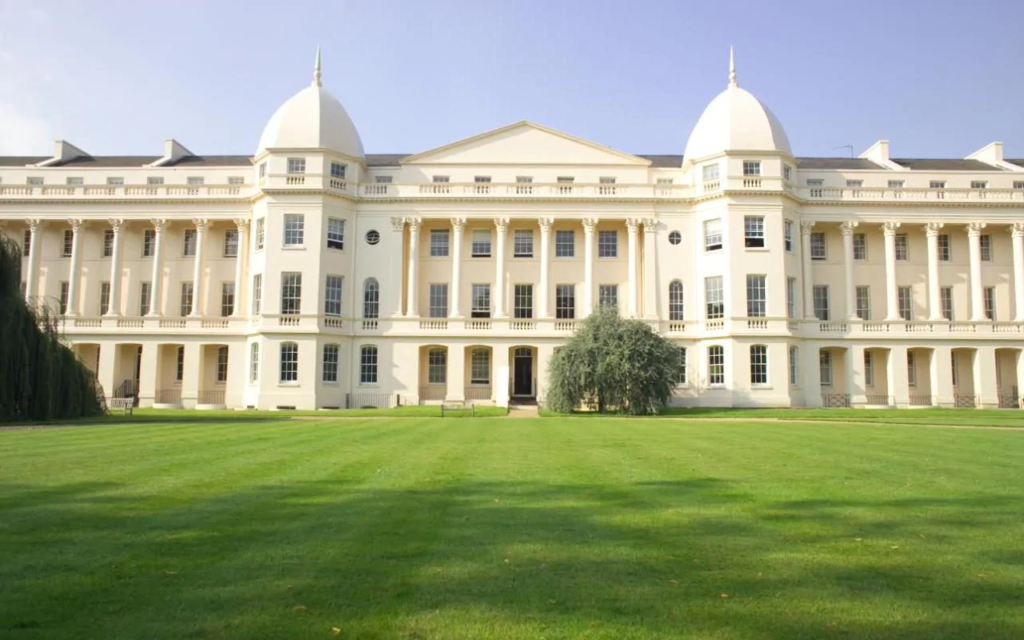As an Indian student with a Bachelor’s degree, deciding to pursue a Masters in Finance in Europe can be a significant step toward advancing your career in the global financial market. With Europe’s finance programs offering a strong foundation in financial theories, hands-on experience, and networking opportunities, the continent has become a popular destination for aspiring finance professionals.
In this guide, we’ll cover the top programs for Masters in Finance in Europe, highlighting leading universities, the program structure, costs, career opportunities, and everything you need to know to make an informed decision. Whether you’re looking for a program that offers industry connections or one with strong research opportunities, this guide will help you find the right fit.
Why Pursue a Masters in Finance in Europe?
Europe is a global hub for finance and business, offering some of the world’s most prestigious finance programs. Here’s why pursuing a Masters in Finance in Europe can be advantageous:
- International Exposure and Networking Opportunities
Europe is home to major financial centers like London, Frankfurt, and Paris, where students have access to a network of global finance professionals. Programs in Europe often integrate networking events, guest lectures, and internships with industry leaders, providing students with an invaluable opportunity to build connections in the finance industry. - High-Quality Education Standards
European universities and business schools are renowned for their rigorous academic standards and innovative teaching methods. Students benefit from a curriculum that combines theoretical knowledge with practical applications, taught by experienced faculty and industry experts. Programs often include modules on financial analysis, risk management, and investment banking, ensuring that graduates are well-prepared for careers in various finance sectors. - Diverse Learning Environment
With students from around the world, European finance programs provide a multicultural learning environment. This diversity fosters a broader perspective on financial practices and global economics, equipping students with the cultural competence needed to work in international teams. - Career Opportunities in Major Financial Markets
A Master’s in Finance from a European institution opens doors to employment in top financial markets. Many programs offer placement assistance, internships, and career counseling, making it easier for graduates to secure positions in investment banking, financial analysis, and consulting roles in Europe and beyond. - Access to Scholarships and Financial Aid
Many European universities and business schools offer scholarships, grants, and financial aid options specifically for international students. This financial support can make studying in Europe more affordable and accessible, even for students from diverse financial backgrounds.
Top 10 Universities for Masters in Finance in Europe
Europe is home to prestigious institutions that offer specialised finance programs to equip students with essential skills for global finance careers. Here’s a look at the top 10 universities offering Masters in Finance in Europe.
1. London Business School (LBS) – United Kingdom
London Business School’s Master’s in Finance program is highly regarded for its rigorous curriculum and strategic location in London’s financial district. The program provides a blend of theoretical knowledge and hands-on experience, helping students build critical finance skills for high-impact roles. LBS also offers ample networking opportunities through its industry connections and guest lectures.

| Feature | Details |
|---|---|
| Program Length | 1 year (full-time), 2 years (part-time) |
| Tuition Fees | £48,000 – £52,000 |
| Notable Alumni | Arif Naqvi (Founder, Abraaj Group), Richard Sharp (Chairman, BBC) |
| Location | London, United Kingdom |
| Average Starting Salary | £70,000 – £80,000 (post-graduation) |
2. HEC Paris – France
HEC Paris offers a Master’s in Finance program recognized for its intensive quantitative and analytical focus. With a curriculum that includes International Finance and Financial Management tracks, HEC prepares students for roles in investment banking, financial management, and consulting. Located near Paris, the program connects students to France’s vibrant finance sector.

| Feature | Details |
|---|---|
| Program Length | 10-16 months |
| Tuition Fees | €31,500 |
| Notable Alumni | Jean-Paul Agon (CEO, L’Oréal), François-Henri Pinault (CEO, Kering) |
| Location | Jouy-en-Josas, France |
| Average Starting Salary | €65,000 – €75,000 (post-graduation) |
3. University of Oxford, Saïd Business School – United Kingdom
The MSc in Financial Economics at Saïd Business School combines Oxford’s academic rigor with practical finance applications. With courses on financial econometrics, corporate finance, and asset pricing, students gain a robust foundation in finance and economics. Oxford’s strong global network enhances job placement in top finance roles.

| Feature | Details |
|---|---|
| Program Length | 9 months |
| Tuition Fees | £45,000 – £50,000 |
| Notable Alumni | Guy Hands (Founder, Terra Firma), David Schwimmer (CEO, London Stock Exchange) |
| Location | Oxford, United Kingdom |
| Average Starting Salary | £65,000 – £75,000 (post-graduation) |
4. ESSEC Business School – France
ESSEC’s Master in Finance program is known for its focus on asset management, risk management, and quantitative finance. Located near Paris, ESSEC provides students with access to internships and networking events, connecting them to leading finance firms across Europe. The program is ideal for those looking to work in financial analysis or investment banking.

| Feature | Details |
|---|---|
| Program Length | 1-1.5 years |
| Tuition Fees | €24,000 – €28,000 |
| Notable Alumni | Renaud Laplanche (Founder, Lending Club), François Hollande (Former President of France) |
| Location | Cergy, France |
| Average Starting Salary | €60,000 – €70,000 (post-graduation) |
5. Università Bocconi – Italy
Bocconi’s Master of Science in Finance is renowned for its analytical and quantitative focus, preparing students for careers in investment banking, asset management, and consulting. Located in Milan, the program offers strong industry connections and internship opportunities within Italy’s financial sector, making it a popular choice for aspiring finance professionals.

| Feature | Details |
|---|---|
| Program Length | 2 years |
| Tuition Fees | €14,000 – €16,000 per year |
| Notable Alumni | Mario Monti (Former Prime Minister of Italy), Vittorio Colao (CEO, Vodafone) |
| Location | Milan, Italy |
| Average Starting Salary | €50,000 – €60,000 (post-graduation) |
6. ESADE Business School – Spain
ESADE’s Master in Finance program is designed to provide students with a comprehensive understanding of financial markets and corporate financial management. The program offers two tracks—Corporate Financial Management and Asset Pricing & Capital Markets—allowing students to specialize according to their career goals. Based in Barcelona, ESADE connects students with leading finance firms and offers substantial networking opportunities.

| Feature | Details |
|---|---|
| Program Length | 1 year |
| Tuition Fees | €29,000 – €31,000 |
| Notable Alumni | Gabriel Escarrer (CEO, Meliá Hotels), Luis Maroto (CEO, Amadeus IT Group) |
| Location | Barcelona, Spain |
| Average Starting Salary | €55,000 – €65,000 (post-graduation) |
7. IE Business School – Spain
IE Business School’s Master in Finance program offers a hands-on approach to learning through simulations, trading labs, and real-world projects. Located in Madrid, IE provides strong connections to Spain’s finance industry and opportunities to participate in networking events and industry conferences. This program is well-suited for students aiming to enter investment banking, private equity, or asset management.

| Feature | Details |
|---|---|
| Program Length | 10 months |
| Tuition Fees | €37,200 |
| Notable Alumni | José María Álvarez-Pallete (CEO, Telefónica), Borja Prado (President, Endesa) |
| Location | Madrid, Spain |
| Average Starting Salary | €60,000 – €70,000 (post-graduation) |
8. EDHEC Business School – France
EDHEC’s MSc in Finance program is well-regarded for its alignment with CFA standards, focusing on financial analysis, asset management, and risk management. With campuses in Lille and Nice, EDHEC connects students to the European finance industry through partnerships and internship opportunities. This program is ideal for students seeking roles in investment or portfolio management.

| Feature | Details |
|---|---|
| Program Length | 1 year |
| Tuition Fees | €25,900 |
| Notable Alumni | Jean-Pascal Tricoire (CEO, Schneider Electric), Bertrand Dumazy (CEO, Edenred) |
| Location | Lille and Nice, France |
| Average Starting Salary | €55,000 – €65,000 (post-graduation) |
9. EADA Business School Barcelona – Spain
EADA’s Master in Finance program combines theoretical learning with practical applications in corporate finance, investment banking, and financial planning. Located in Barcelona, EADA provides access to Spain’s finance industry, helping students secure internships and networking opportunities. The program focuses on developing critical analytical and managerial skills essential for finance careers.

| Feature | Details |
|---|---|
| Program Length | 1 year |
| Tuition Fees | €26,000 |
| Notable Alumni | José Antonio Pérez-Nievas (CEO, The Eat Out Group), Javier Gómez Navarro (Former President, Spanish Chamber of Commerce) |
| Location | Barcelona, Spain |
| Average Starting Salary | €50,000 – €60,000 (post-graduation) |
10. University of St. Gallen – Switzerland
The University of St. Gallen offers a Master in Banking and Finance program that emphasizes analytical and quantitative skills. Known for its strong ties to the Swiss finance industry, St. Gallen provides students with internship opportunities and industry connections. Graduates from this program are well-prepared for careers in banking, finance consulting, and asset management within Switzerland and beyond.

| Feature | Details |
|---|---|
| Program Length | 1.5 – 2 years |
| Tuition Fees | CHF 6,452 (per year for international students) |
| Notable Alumni | Thomas Wellauer (Chairman, Clariant), Urs Rohner (Former Chairman, Credit Suisse) |
| Location | St. Gallen, Switzerland |
| Average Starting Salary | CHF 80,000 – CHF 90,000 (post-graduation) |
Admission Requirements and Application Tips for Masters in Finance in Europe
| Admission Criteria | Details |
|---|---|
| Academic Prerequisites | Bachelor’s degree in finance, economics, business, or related field. Competitive GPA (2:1 or above in UK standard) |
| GMAT/GRE Scores | Required by most top programs; competitive GMAT score between 650-700. Some programs may waive for significant work experience |
| English Proficiency | TOEFL or IELTS required for non-native speakers; minimum scores: TOEFL 100, IELTS 7.0 |
| Relevant Work Experience | 1-3 years preferred; internships in finance, banking, or consulting are advantageous |
| Statement of Purpose (SOP) | Required; should highlight motivation, career goals, and interest in specific program features |
| Letters of Recommendation | 2-3 recommendations from professors or industry professionals who can attest to analytical skills |
| Resume/CV | Required; should list relevant academic, professional experiences, and quantifiable achievements |
| Application Tips | – Tailor SOP to mention specific courses and faculty – Quantify achievements to stand out – Apply early to secure scholarships in initial rounds |
What to Expect from a Masters in Finance in Europe
Here’s a table outlining the Masters in Finance in Europe, covering core subjects, specialised electives, hands-on learning, and capstone projects to give students a clear understanding of what to expect academically and practically.
| Curriculum Component | Description |
|---|---|
| Core Subjects | Courses on Financial Analysis, Corporate Finance, Quantitative Finance, and Investment Banking provide a strong foundation in finance theory and practices. |
| Specialized Electives | Options may include Risk Management, Mergers & Acquisitions, Derivatives, and Alternative Investments, allowing students to tailor studies to career interests. |
| Hands-On Learning Opportunities | Practical exposure through case studies, simulations, internships, and trading labs, where students apply classroom knowledge to real-world financial scenarios. |
| Capstone Project or Thesis | A final project or thesis requiring applied financial research, often involving real industry problems and mentorship from faculty or industry professionals. |
Cost of Studying for a Masters in Finance in Europe

Pursuing a Masters in Finance in Europe can be a significant investment, with costs varying based on factors like university ranking, location, and program length. Here’s an overview of typical expenses for international students, covering tuition, living costs, and additional expenses.
| Cost Category | Estimated Amount (Per Year) | Notes |
|---|---|---|
| Tuition Fees | €14,000 – €50,000 | Higher at private and top-ranking institutions |
| Living Expenses | €10,000 – €18,000 | Varies by city; higher in London and Paris |
| Books and Supplies | €500 – €1,000 | Depends on program requirements |
| Health Insurance | €300 – €600 | Required for international students |
| Public Transportation | €480 – €840 | Monthly passes vary by city |
| Miscellaneous | €1,000 – €2,000 | Personal expenses, including leisure and travel |
Note: These are approximate amounts and may vary based on individual lifestyle and program requirements.
Scholarships and Financial Aid for Masters in Finance in Europe
Many European universities and organizations offer scholarships and financial aid specifically for international students pursuing a Masters in Finance in Europe. These funding options can significantly reduce the cost of studying abroad, making programs more accessible to students from diverse financial backgrounds.
Table: Common Scholarships and Financial Aid Options for Masters in Finance in Europe
| Scholarship/Funding Option | Coverage | Eligibility |
|---|---|---|
| Erasmus+ Scholarships | Tuition, travel, and monthly stipend | For Erasmus Mundus program students |
| DAAD Scholarships (Germany) | Living expenses, health insurance | For international students studying in Germany |
| British Council GREAT Scholarships | Up to £10,000 | Available to students from selected countries |
| HEC Paris Excellence Scholarships | Partial tuition coverage | Awarded based on merit for HEC Paris applicants |
| London Business School Scholarships | Partial to full tuition | Merit-based; varies by scholarship type |
| Prodigy Finance Loans | Tuition and living expenses | Available to international students without co-signer |
Career Opportunities and Salary Prospects After a Masters in Finance in Europe

Graduating with a Masters in Finance in Europe institution opens doors to numerous career paths, each with promising salary prospects. European financial hubs like London, Frankfurt, and Paris offer excellent opportunities for finance professionals, particularly in investment banking, asset management, financial consulting, and risk management.
Table: Average Starting Salaries by Role and Location
| Role | London (UK) | Paris (France) | Frankfurt (Germany) | Milan (Italy) |
|---|---|---|---|---|
| Investment Banking Analyst | £60,000 – £80,000 | €55,000 – €75,000 | €50,000 – €70,000 | €45,000 – €65,000 |
| Asset Management Associate | £50,000 – £70,000 | €50,000 – €70,000 | €45,000 – €65,000 | €40,000 – €60,000 |
| Financial Consultant | £45,000 – £65,000 | €45,000 – €65,000 | €40,000 – €60,000 | €38,000 – €55,000 |
| Corporate Finance Analyst | £40,000 – £60,000 | €42,000 – €60,000 | €38,000 – €55,000 | €35,000 – €50,000 |
Note: Salaries vary depending on company size, location, and applicant experience.
Conclusion: Is a Masters in Finance in Europe Right for You?
Deciding to pursue a Masters in Finance in Europe is a significant commitment that can greatly enhance your career prospects, especially if you aim to work in global financial markets. Europe’s finance programs offer a solid foundation in financial principles, exposure to international networks, and direct connections to some of the world’s most influential financial centres. As you consider this path, be sure to assess program offerings, internship opportunities, and financial aid options to select the program that best aligns with your career goals. If you’re ready to take the next step, connect with a study abroad consultant who can guide you through the application process and help you stand out to top European universities.




